Swedish culture is rich in history and tradition, and one of the most interesting aspects of that culture is its approach to naming. In Sweden, names are not simply a way to identify oneself, but also a means of connecting with the country's cultural heritage. From traditional names inspired by Norse mythology to modern names influenced by popular culture, Swedish girl names reflect the country's unique identity and values. There are countless options to choose from, each with its own distinctive meaning and history.
See also the list for Swedish boy names.
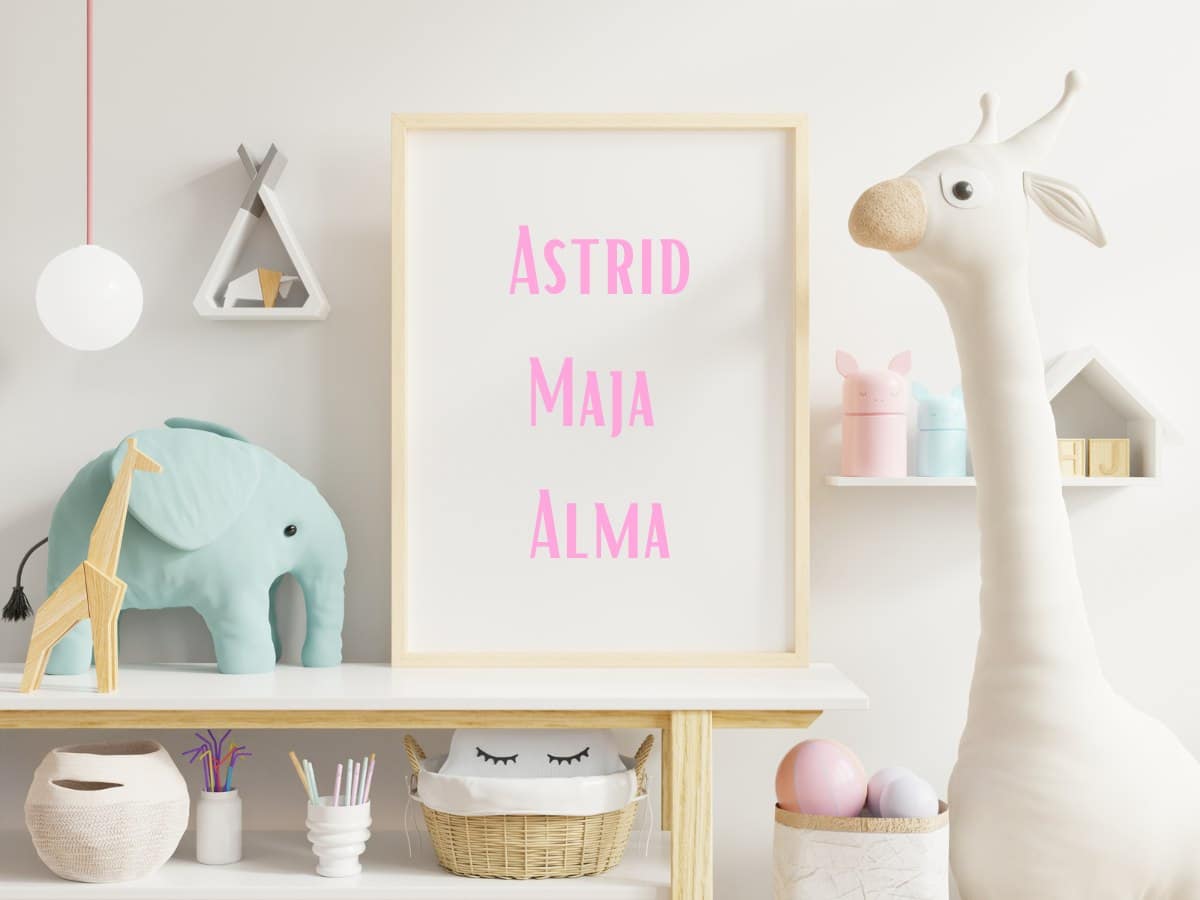
Jump to:
- Importance of Names in Swedish Culture
- Overview of name traditions
- Social and politics influence on naming trends
- Most common female names in Sweden
- Most popular girl names throughout the years
- Traditional Swedish female names and their meaning
- Most common double names
- Old Swedish girl names
- Some special and uncommon Swedish girl names
- Names inspired by nature
- Gender neutral names
- Swedish royal girl names
- Get name inspired by popular culture and celebrities
- Names your child after a food
- How to choose a Swedish girl name?
- Tips for finding a name that fits your child
- More about Swedish culture
Importance of Names in Swedish Culture
One of the key reasons names are so important in Swedish culture is the strong sense of community and family. Names are often chosen to honor family members or to connect children to their family's history and traditions. For example, it is common for children to be given a middle name that is a family surname or the name of a grandparent or great-grandparent.
Names are also seen as a way to express individuality and personal values. Many parents in Sweden choose names that reflect their own beliefs or interests, such as nature-inspired names or names that are gender-neutral.
In addition to family and individual values, names in Sweden also reflect the country's cultural and historical roots. Many traditional Swedish names are derived from Norse mythology, and some even have connections to the Viking Age. These names serve as a way to connect modern Swedes to their ancient history and cultural identity.
Overview of name traditions
One of the most common traditions in Sweden is to give a child two given names, with the second name often being a family name. This tradition reflects the importance of family ties and connections in Swedish culture.
Another tradition in Sweden is to celebrate a child's name day, which is a special occasion that honors the saint or historical figure associated with the child's given name. Name days are widely celebrated in Sweden, and they often involve special treats, such as cakes or candies.
In addition to traditional Swedish names, there has been a recent trend towards giving children names that are inspired by nature or are gender-neutral. This reflects Sweden's commitment to gender equality and sustainability.
Swedish naming laws are also unique in that they require parents to choose a name from a pre-approved list of first names. This is to prevent parents from giving their child a name that could be considered offensive or could cause the child harm or ridicule.
Social and politics influence on naming trends
- Feminist movements: Sweden has a long history of feminist activism, which has impacted naming trends. In recent years, there has been a trend towards gender-neutral names, such as Lova, Nova, and Noa, which are popular for both girls and boys. This reflects a growing acceptance of non-traditional gender roles and a rejection of gender stereotypes.
- Immigration: Sweden has a large and diverse immigrant population, and this has influenced naming trends in recent years. Names from other cultures have become more popular in Sweden, reflecting the country's multicultural society.
- Politics: Political events can also influence naming trends. For example, after the Swedish Social Democratic Party won the election, Stefan became more popular among Swedish parents after the party's leader Stefan Löfven. Similarly, the name Greta has become more popular in recent years, likely due to the activism of climate activist Greta Thunberg.
- Royalty: The Swedish royal family significantly influences naming trends in Sweden. For example, after Crown Princess Victoria gave birth to a daughter named Estelle in 2012, the name became more popular among Swedish parents.

Most common female names in Sweden
Here is a list of the most common 50 girl names given for babies year 2022.
| Name | Amount named year 2022 |
|---|---|
| Astrid | 603 |
| Maja | 601 |
| Alma | 596 |
| Vera | 592 |
| Freja | 584 |
| Leah | 570 |
| Ella | 563 |
| Alice | 552 |
| Selma | 540 |
| Lilly | 530 |
| Elsa | 528 |
| Ellie | 513 |
| Ines | 512 |
| Olivia | 504 |
| Stella | 482 |
| Wilma | 474 |
| Signe | 456 |
| Ebba | 453 |
| Ester | 433 |
| Clara | 429 |
| Saga | 412 |
| Alva | 403 |
| Agnes | 402 |
| Alicia | 383 |
| Mila | 378 |
| Juni | 364 |
| Molly | 354 |
| Leia | 349 |
| Luna | 349 |
| Iris | 348 |
| Hedda | 339 |
| Julia | 321 |
| Alba | 320 |
| Ellen | 302 |
| Sigrid | 292 |
| Elvira | 289 |
| Nora | 283 |
| Edith | 276 |
| Sara | 276 |
| Meja | 273 |
| Celine | 256 |
| Nellie | 253 |
| Lova | 252 |
| Livia | 251 |
| Nova | 251 |
| Lykke | 250 |
| Rut | 248 |
| Elise | 244 |
| Lo | 244 |
| Sofia | 235 |
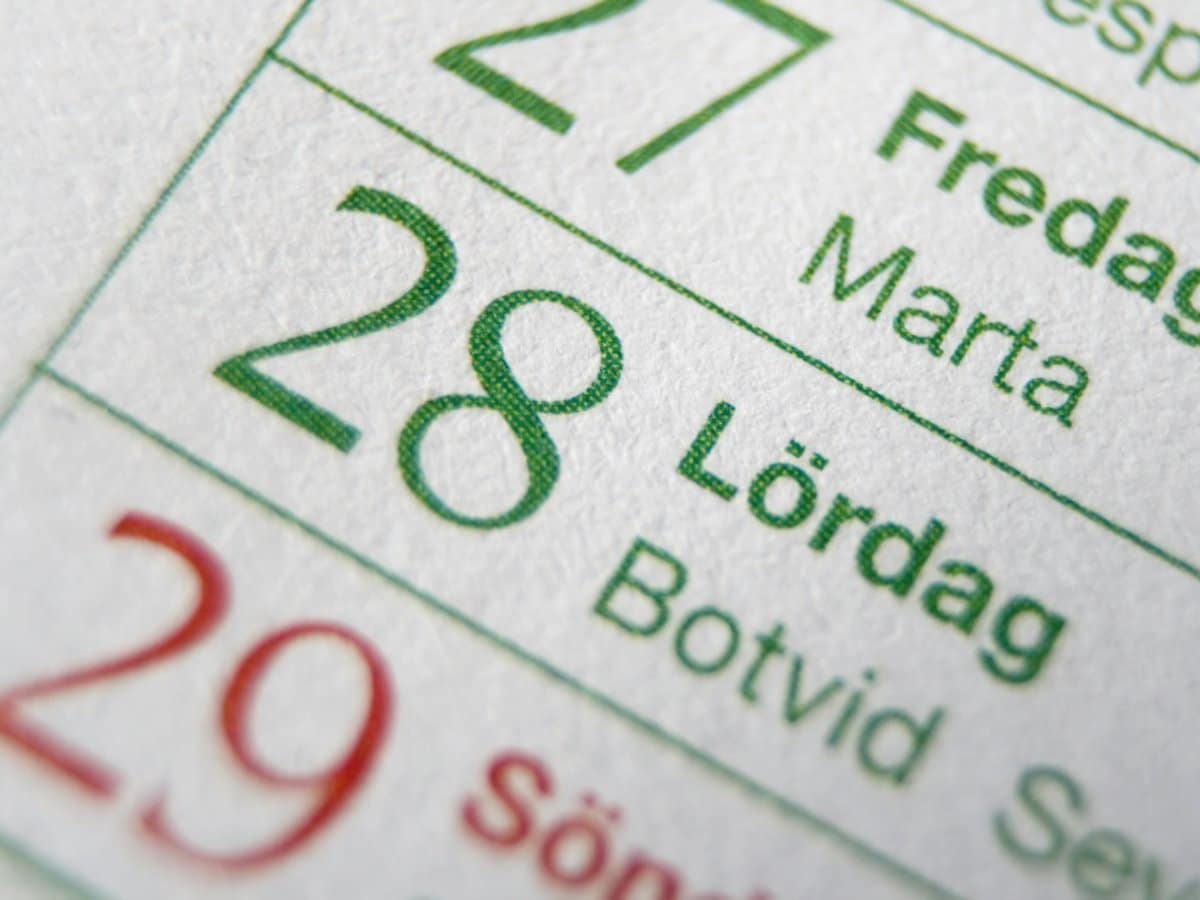
Most popular girl names throughout the years
1920
- 1. Anna
- 2. Ingrid
- 3. Karin
- 4. Rut
- 5. Inga
- 6. Ulla
- 7. Kerstin
- 8. Elsa
- 9. Britta
- 10 Birgit
1930
- Kerstin
- Ingrid
- Ulla
- Karin
- Siv
- Inger
- Anna
- Barbro
- Gun
- Berit
1940
- Eva
- 2. Kerstin
- 3. Inger
- 4. Birgitta
- 5. Karin
- 6. Ulla
- 7. Ingrid
- 8. Anita
- 9. Monica
- 10. Margareta
1950
- Eva
- 2. Lena
- 3. Kristina
- 4. Karin
- 5. Kerstin
- 6. Monica
- 7. Birgitta
- 8. Inger
- 9. Elisabeth
- 10. Ingrid
1960
- Maria
- 2. Eva
- 3. Susanne
- 4. Lena
- 5. Carina
- 6. Kristina
- 7. Marie
- 8. Annika
- 9. Anna
- 10. Anette
1970
- 1. Anna
- 2. Maria
- 3. Linda
- 4. Jenny
- 5. Malin
- 6. Sara
- 7. Camilla
- 8. Åsa
- 9. Ulrika
- 10. Marie
1980
- 1. Anna
- 2. Sara
- 3. Maria
- 4. Emma
- 5. Malin
- 6. Jenny
- 7. Linda
- 8. Johanna
- 9. Sandra
- 10. Emelie
1990
- 1. Emma
- 2. Sara
- 3. Elin
- 4. Amanda
- 5. Hanna
- 6. Johanna
- 7 Julia
- 8. Emelie
- 9. Josefin
- 10. Anna
2000
- 1. Emma
- 2. Julia
- 3. Maja
- 4. Elin
- 5. Linnéa
- 6. Wilma
- 7. Ida
- 8. Hanna
- 9. Alva
- 10. Alice
2010
- 1. Alice
- 2. Maja
- 3. Elsa
- 4. Ella
- 5. Julia
- 6. Ebba
- 7. Olivia
- 8. Wilma
- 9. Lilly
- 10. Agnes
2020
- 1. Alice
- 2. Maja
- 3. Elsa
- 4. Astrid
- 4. Wilma
- 6. Freja
- 7. Olivia
- 8. Selma
- 9. Alma
- 10. Ella
Traditional Swedish female names and their meaning
| Name | Meaning |
|---|---|
| Anna | Origin in the Hebrew name Hannah meaning grace and beautiful. Anna could also be popular because of Saint Anne, mother of Mary according to Christian apocryptal. |
| Amanda | In English: Amanda is a female name with Latin origin, meaning "the lovable one". The name is very typical for people born in the 1990s, as in the mid-1990s it was the second most common name given to baby girls. |
| Maria | Maria is a female name, and a Greek and Latin form of the original Hebrew name "Miryam/Miriam. Maria is most known as the mother of Jesus in the Christian Bible. Meanings can include "rebellion", "defiant", "sea" (from Latin "maris" and "mare", Hebrew "yam" - Miryam), "the beautiful one", "loved by God", "the perfect one", "the one who loves God". |
| Elisabeth | Hebrew origin (Elisheba) that means "God is perfection" or "God is my oath" or "God is sovereign". Elisabet is one of the most common female names in Sweden. However, its popularity as a given name has been declining, and in the mid-1990s, the name fell out of the top 100 list. |
| Kristina | Kristina or Christina is a female name, the feminine form of Kristian (Christian) and the name of several Swedish queens. The name was most popular in the 40s and 50s. |
| Eva | Eva is a female name that comes from the Hebrew word "chawa" which designates the Biblical mother of all living, the life-giver, also known as Eve in English. |
| Margareta | The name has been used in Sweden since at least the 12th century when King Inge the Elder's daughter was named Margareta Fredkulla. Several queens and princesses in Sweden have had the name. The name is derived from a Persian word that means "pearl". |
| Monica | Origin unknown. The mother of the Church Father Augustine was named Monica. The oldest recorded use of the name in Sweden dates back to 1785. Nowadays, it is relatively uncommon for children to be named Monica, but during the 1950s, it was among the more common names. |
| Jenny | Jenny means "God has shown mercy to me". Jenny is a female name and an English diminutive of Johanna. |
| Lena | Lena has been used in Sweden for at least 600 years. Lena can be seen as a diminutive form of the names Magdalena or Helena. Both names are of Greek origin; Helena (originally Elena) means "beautiful" and Magdalena means "woman from Magdala". |
| Birgitta | Birgitta is a female name of Celtic origin that means "the high" or "the exalted". |
| Sofia | Sofia, Sophia, and Sofie are of Greek origin and come from the word "sopheía" which means "wisdom" and "knowledge". |
| Marianne | Meaning "woman" or "female," Marianne can also be seen as a combination of the names Mary and Anne. Mary is of Hebrew origin and means "beloved" or "wished for child," while Anne is of Greek origin and means "grace." Therefore, Marianne can also be interpreted as "beloved grace." |
| Helena | Helena has Greek origins and is derived from the word "helene," which means "bright," "shining," or "torch." |
| Emma | Emma is a female name of German origin, originally a nickname for names like Erm(in)-Emerentia, meaning "great, mighty, whole, universal," and later also used as a nickname for Emilia. Emma is one of the most popular girl names. |
| Sara | Sara means "princess" or "ruler" or "sovereign". In Persian, Sara means pure, and very unique. |
| Johanna | Greek origin (Ioanna), and a feminine form of Johannes. Both names are derived from Greek variations of the Hebrew name Yochanan which means "God has shown mercy". Johanna means "God is gracious" or "Gift of God". A very popular historical name in Sweden. |
| Viktoria | Viktoria or Victoria, like the male equivalent Viktor, comes from the Latin word "vincere", which means "victory". The spelling with "c" is more common among younger generations. The name was one of the popular names in the 1980s trend. |
| Cecilia | "Cecilia" is a female given name of Latin origin (Caecilia). Originally, it was carried by female members of the Roman family Caecilius. The name means "blind". Cecilia is also the patron saint of music. It can also mean the sixth child. |
| Susanna | "Susanne" is a French form of the female name "Susanna" which has its origin in Greek, and in turn goes back to a Hebrew name meaning "lily". The name form "Susanne" began to be used in Sweden in the late 1800s and during the 1900s it became more popular than the form "Susanna". a very trendy name in the 60 and 70s in Sweden. |
| Anita | A Spanish nickname form of Anna (Anita becomes "little Anna" in Spanish) that has been used in Sweden since the mid-1800s. Anna, in turn, comes from the Hebrew "Channa" which means grace. The name is common among those who were born in the 1940s." |
| Elsa | "Elsa" is derived from "Elisabet," which is a biblical name with the meaning "God is perfection." |
| Frida | "Frida" is an Old Norse name that means "the beautiful" and "the beloved." |
| Åsa | It means "queen of goddesses". The name was most common among newborns during the 1970s. |
Most common double names
| Name | Amount with this name in Sweden -21 |
|---|---|
| Ann-Christin | 14568 |
| Ann-Marie | 13372 |
| Britt-Marie | 12840 |
| Ann-Charlotte | 9845 |
| Anna-Karin | 9179 |
| Ann-Sofie | 8498 |
| Inga-Lill | 8143 |
| Rose-Marie | 7657 |
| Anna-Lena | 6806 |
| Marie-Louise | 6624 |
Old Swedish girl names
Norse mythology has had a significant influence on Swedish culture, including its naming traditions. Many Swedish names have origins in Norse mythology and folklore, with many of these names having a strong association with certain mythological figures and stories.
For example, the name Freya, which means "lady" or "queen" in Old Norse, was the name of the goddess of love, fertility, and war in Norse mythology. The name Odin, which means "fury" or "inspiration" in Old Norse, was the name of the chief god in Norse mythology.
Other examples of Swedish names with Norse mythology origins include Thor, Loki, Saga, Balder, and Hilda.
The influence of Norse mythology on Swedish names can also be seen in the use of suffixes like "-björn" (meaning "bear") and "-dís" (meaning "goddess") in many traditional Swedish names.

Some names with Viking origin:
- Freydis: Fey or Frej is the God of love in northern mythology. His sisters name was Freya. Dis meand goddess. This name means "goddess of love."
- Astrid: Astrid is an Old Norse name, formed from as (god) and frid (beautiful), meaning divine beauty, which is interpreted as godly beautiful. The Old West Norse form was Ásfríðr. The name was common during the interwar period, but has also increased in popularity in recent years.
- Sigrid: Sig- meaning 'victory' and -frid meaning 'beloved'. The name Sigrid appears in Nordic saga literature. Sigrid the Proud is said to be the daughter of a West Götaland chieftain, married to Erik the Victorious, and mother to Olof Skötkonung.
- Ingrid: Origin form of name Ingifridh. Firs part of names comes from an old god name and second part , fridher, means beautiful, beloved. There are over 100 000 woman with the name Ingrid in their name.
- Thora: This name means "thunder." The feminine name for Thor-god of thunder.
- Gudrun: This name means "God's secret lore" or "God's wisdom."
- Helga: This name means "holy" or "blessed."
- Eira: Eira originates from the Old Norse goddess Eir, the goddess of healing. Eira means "the soothing one" and also means "snowflake" in Welsh.
- Hilda: This name means "battle" or "warrior." Name is after Odins valkyries.
- Saga: means "seeress" or "she who sees". Was the name of a goddess in Norse mythology. In one story, she and Odin drank from a golden vessel in her dwelling at Sökkvabekkr.
Other old Swedish names
- Gunhild: This name means "battle maiden."Short forms are Gun and Gunni.
- Elin: This name means "torch" or "bright." The Swedish saint Saint Elin of Skövde, also known as Helena, lived in the mid-12th century and it is from her that the name has made it into the Swedish calendar.
- Karin: This name means "pure" or "beloved."
- Signe: This name means "new victory."
- Svea: This name means "Swedish woman."
- Birgit: This name means "strong" or "exalted one."
- Märta: This name means "lady" or "mistress."
- Ingegerd: This name means "guarded by Ing," where Ing is the Old Norse god of fertility and prosperity.
- Gertrud: This name means "spear of strength."
- Margareta: This name means "pearl."
- Helena: This name means "bright" or "shining light."
- Kristina: This name means "follower of Christ."
- Katarina: This name means "pure" or "unsullied."
- Ulrika: This name means "power of the wolf."
- Charlotta: This name means "free woman."
- Beata: This name means "blessed."
- Lovisa: This name means "famous warrior."
Some special and uncommon Swedish girl names
- Annelie
- Armida
- Antonella
- Disa
- Eily
- Edil
- Elva
- Joline
- Majken
- Embla
- Alva
- Signe
- Eira
- Hillev
- Josselyn
- Irmeline
- Vera-Linn
- Nova-Li

Names inspired by nature
| Name | Origin and history |
|---|---|
| Linnea | Linnea Borealis is a flower. Linnea is a female name that comes from Carl von Linné's surname and is the name of a plant named after him, which was also his favorite flower. |
| Iris | "Iris" is a Greek name that means "rainbow". The word can refer to the rainbow-colored part of the eye, the plant genus Iris, or the goddess Iris. |
| Vega | "The female name Vega has Arabic origin (Arabic: waqi, meaning 'falling, diving (eagle)'), and it is identical to the star Vega in the constellation Lyra. As a Swedish female name, it has been used since 1874 and became popular through the name of the ship that Adolf Erik Nordenskiöld sailed through the Northeast Passage from 1878 to 1880. As a tribute to Nordenskiöld and his expedition, the name was introduced in the Swedish almanac in 1901 on the date when the ship Vega returned to Stockholm." |
| Eira | "Eira" is a female name that originates from the Old Norse goddess Eir, the goddess of healing. Eira means "the soothing one" and it also means "snowflake" in Welsh. Was in The Swedish almanac in the 1980. Not so common but is more trendy. There are around 1600 with the name Eira. |
| Liv | Liv means life in Swdish. It is a Nordic (Norwegian) name. The name originates from the Icelandic word "hlif" which means protection or defense. |
| Tindra | The name means sparkling, shimmering, radiant, and luminous, and is often used when referring to stars. |
| Aurora | Name comes from Roman mythology and means morning redness or dawn. Aurora Borealis is also Latin for northern lights. |
| Dahlia | Is the name of a flower named after the Swedish botanist Anders Dahl. |
| Flora | Comes from the Latin word flos, which means flower. Flora was also the Roman goddess of spring and flowers. |
| Daisy | Is the English word for the white flower commonly known as the daisy, originally meaning "day's eye." In Sweden, over 630 women have Daisy as their given name, though it is not a Swedish word. |
| Luna | The Latin word for moon. In Roman mythology, Luna was also the name of the moon goddess. |
| Maj | Maj is the month of May, It is when everything begins to bloom. In Sweden, over 7,700 women have Maj as their given name. |
| Lilly | Also forms Lillan, Lilianne, Lillian, Lilien. Name comes from Latin meaning the flower lily. |
| Viola | Represents the purple flower violet. |
Gender neutral names
Gender neutrality is a trending phenomenon is Sweden. For example, in childcare it is advised not to call kids he or she (han/hon) but hen.
Here are some examples of gender-neutral names: Adan, Alem, Alexis, Alva, Anno, Ellis, Inge, Joy, Lo, Lelle, Lova, Love, Tove, Vega, Nova, Loke, Frej, Milo, Mino, Rio, Noor, Ziggy.
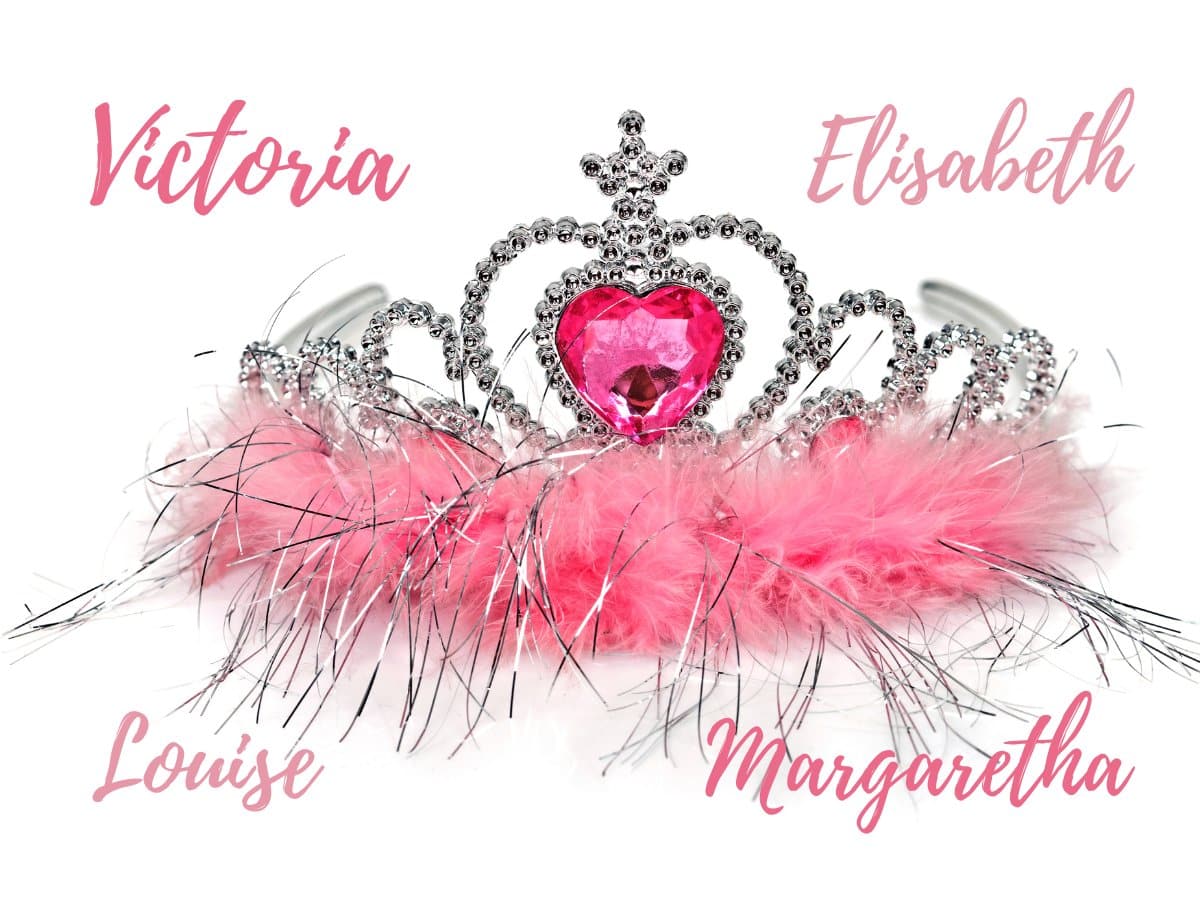
Swedish royal girl names
Here are some traditional Swedish girl names that have been used by members of the royal family:
- Agnes
- Amalia
- Anna
- Anna Maria
- Alice
- Astrid
- Beatrix
- Benedikta
- Birgitta
- Blanka
- Carola
- Catharina
- Cecilia
- Charlotta
- Christina
- Desiree
- Dorotea
- Eleonora
- Elisabeth
- Elsa Beata
- Estelle
- Estrid
- Eugenia
- Eufemia
- Filippa
- Fredrika
- Gunhild
- Gunilla
- Hedvig
- Helena
- Ingegerd
- Ingrid
- Katarina
- Kristina
- Leonore
- Louise
- Lovisa
- Madeleine
- Margaretha
- Maria
- Märtha
- Ragnhild
- Silvia
- Sigrid
- Sibylla
- Sofia
- Teresia
- Tyra
- Ulrika
- Ulvhild
- Victoria
- Wilhelmina
Get name inspired by popular culture and celebrities
- Leonore-Princess Madeleines daughters name.
- Camilla-a famous Swedish writer Camilla Läckberg.
- Jenny- a Swedish journalist and tv person Jenny Strömstedt.
- Regina-Regina Lund is an actress.
- Estelle-Princess Victorias daughters name.
- Carola-Carola Häggkvist is a famous Swedish singer.
- Flisa-after the daughter in "Barna I Hedenhös" story
- Selma-Selma Lagerlöf was a famous writer
- Barbro-known as Lill-Babs was a singer av tv-personality
- Agnetha-singer in ABBA
- Anni-Frid-singer in ABBA
- Greta- Greta Thunberg is a famous environment activist
- Ingrid- Ingrid Bergman-acctress in Hollywood
- Magdalena- Magda Forsberg is an Olympic bronze medallist
- Annika-Annika Sörenstam a professional golfer
- Anita- Anita Ekberg was a famous actress
- Greta- Greta Garbo was also an actress

Some names from Astrid Lindgrens stories
- Pippi-as in Pippi Långstrump book series
- Lisabet- Madickens little sister.
- Lovis- Ronja Rövardotter´s mother.
- Alma- Mother of Emil o Ida i Lönneberga
- Alva- Maid at Junibacken in Madicken
- Bettan- Little brothers older sister in Karlsson på taket
- Britta-Kajsa- Girl in the living doll Mirabelle
- Edla- Bosse has autie Edla as foster parent
- Elfrida- appears in the book Bröderna Lejonhjärta
- Kerstin-Little sister to Olle i Bullerbyn
- Lisabet- s nickname from the book Madicken
- Majken- fronm the book Lotta på Bråkmakargatan
- Mariann- appears in the story Britt-Mari lättar sitt hjärta
- Ylva-Li- in the book Allrakäraste syster
Why do some Swedes have four names?
In Sweden, it is common for individuals to have four names: a given name, a middle name, a family name, and a second family name. This tradition dates back to the 19th century when Sweden introduced a law that required everyone to have a family name.
The Swedish naming tradition is based on the Latin naming system, where the first name is the given name, the middle name is the father's name, and the family name is the surname.Many like to have two surnames giving equal recognition to both parents' family names.
For example, if a child's name is Sofia Maria Andersson Karlsson, "Sofia" is the given name, "Maria" is the middle name, "Andersson" is the father's family name, and "Karlsson" is the mother's family name.
Some like to preserve the old tradition of having parents' names as middle names for example: Sofia Eriksdotter Maj-Lis Andersson. Eriksdottre means her fathers name is Erik and she is his daughter, while Maj-Lis is a middle name from the mother or some relative. Andersson is the surname.

Names your child after a food
Many Swedish dishes have some names included. Some examples are Napoleonbakelse, Biff a la Lindström, Sarah Bernhardt kaka, and Janssons frestelse.
Sarah Bernhardt
Sara or Sarah is a quite common Swedish girl name. The Sarah Bernhardt chokladbiskvier are a small chocolate pastry with an almond paste crust and buttercream filling, topped with chocolate.
Sarah was a French stage actress. The pastries named after her are a beloved treat in Sweden.
Peach Melba
Peach Melba was invented in 1892 or 1893 by the French chef Auguste Escoffier at the Savoy Hotel, London, to honour the Australian soprano Nellie Melba. Melba is not a Swedish name but 34 people have this name in Sweden.
Pavlova
The meringue dessert pavlova got its name from the ballerina Anna Pavlova. Anna is also a common Swedish name.
Tosca
Swedes love toscakaka that is a cake with almond crust on top. Tosca is an Opera by Puccini.
Margaretatårta
This cake is a Swedish favorite consisting of sponge cake layers alternating with smooth vanilla cream. Decorated with piped almond paste, mandarins, and almond flakes on the sides. Decorated with fresh raspberries.
Sabinabröd
Unknown to who Sabina was but this is a bit sweet Swedish bread made with rye and wheat.

How to choose a Swedish girl name?
- Heritage: If you have Swedish roots or are raising your child in a Swedish-speaking household, choosing a Swedish name can be a way to honor your family's heritage and cultural background.
- Nature: Many Swedish names are inspired by nature and the beautiful landscapes of Sweden. Consider names like Linnea, Iris, or Eira, which all have nature-inspired meanings.
- Popular culture: Swedish literature, films, and television shows can offer inspiration for unique and meaningful names. Characters like Lisbeth, Ronja, and Pippi have become iconic cultural figures in Sweden.
- Pronunciation and spelling: Swedish names often have unique spellings and pronunciations that may be unfamiliar to people outside of Sweden. Make sure the name you choose is easy to pronounce and spell, especially if you plan on living in a country where Swedish is not the primary language.
- Meaning: Many Swedish names have beautiful and meaningful origins, so it's worth researching the meanings behind names you like. Choose a name with a positive and uplifting meaning that resonates with you and your family.
Tips for finding a name that fits your child
- Personality: Have you noticed some personality traits while carrying your child? How about you and your husbands personality and interests, could they be reflected in the child name?
- Meaning: A name with a positive meaning can be a powerful influence on your child's self-image. Consider names that are associated with positive traits like strength, wisdom, or kindness.
- Future: Remember that your child's name will stay with them for life, so consider how it will sound and look on a resume, business card, or social media profile. Choose a name that is easy to spell and pronounce, and that will age well over time.
- Traditions: If you have family traditions or cultural values that are important to you, consider incorporating them into your child's name. This can be a meaningful way to honor your family's heritage and pass on important values to your child.
Some sources: Institut för språk o folkminnen. Svenska akademien. Babyhjälp, Expressen.se, Matkult, Baam.se







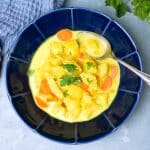








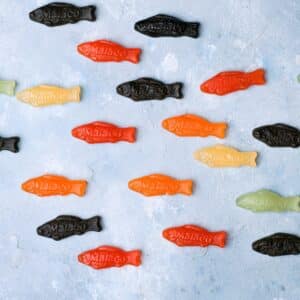



Leave a Reply